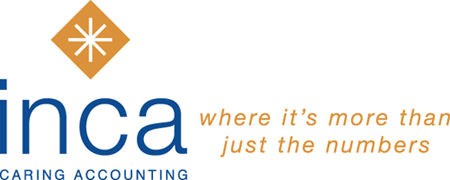Important note: Inca are not financial advisors. This blog post addresses the tax implications of investing in venture capital schemes – we are not promoting this kind of activity. All investments carry risk, and you should always consult your financial advisor before making any investment.
The UK economy’s post-Covid bounce-back may have been dampened by supply chain challenges, but there’s no sign of any slowdown in the number of new companies starting up.
According to figures from Companies House, in the four quarters to the end of the first three months of 2021, there were more than 810,000 business incorporations in the UK – an increase of 22% compared with the same period last year.
Some of these start-ups will succeed and may even go on to become the big brands of the future. If you have capital to invest and put your money into one that makes it, there is potential for a significant return.
But the reality is that many will fail. Less than one in five start-ups make it to their fifth birthday – unless they’re an Inca client. Helping businesses beat these odds is our raison d’être; 63.9% of the new start-ups Inca works with get to celebrate their fifth birthday – a success rate more than 300% higher than the national average!
But not all new businesses benefit from the support Inca can provide, and the fact is that getting a new company off the ground comes with a relatively high level of risk. For prospective investors then, putting money into start-ups or early-stage companies may not be an attractive proposition.
Recognising this, the government operates several venture capital schemes designed to lessen risk and make investing in private companies more attractive for individuals.
Last month we looked at two of these schemes – the Seed Enterprise Initiative Scheme (SEIS) and the Enterprise Initiative Scheme (EIS), answering some of the key questions a business owner seeking investment might ask. In this blog, we consider these schemes again, this time answering questions from the perspective of potential investors.

1. What are SEIS & EIS?
SEIS and EIS are government-operated venture capital schemes. They’re mutually beneficial to start-up businesses and individuals looking for investment opportunities.
They provide a way for companies not listed on any stock exchange to access funds to grow and develop without having to go to their bank – and offer generous tax breaks to investors.
As an investor, you have two options. You can invest directly in a single qualifying company through one of the schemes, or use a Venture Capital Trust (VCT), an HMRC approved company that will use your funds to loan money to a range of qualifying businesses, spreading any risk.
2. Who can invest in a venture capital scheme?
Any individual can invest in SEIS or EIS. You don’t have to live in the UK, but you must be a UK taxpayer to qualify for tax relief (see below). In addition, investors must not be a director or an employee of the company they invest in and cannot have more than a 30% shareholding in any one company.
3. How much can you invest?
The maximum you can invest in SEIS is £100k, while the investment limit for EIS is £1 million. The EIS limit increases to £2 million if at least £1 million of it is invested in ‘knowledge-intensive companies’. These are businesses that carry out work to create intellectual property or have 20% of their employees carrying out research.
4. If you’re due a return, how will you receive it?
As we’ve already pointed out, investing in venture capital schemes is high risk. There is no guarantee you’ll receive a return, and you might even lose your capital. But if you are due a return, the way you receive it will depend on how you made your investment. You’ll receive your return in the form of capital growth if you invested directly into a venture capital scheme or in dividends if you invested through a VCT.
5. What tax relief can you claim?
Investors in venture capital schemes are entitled to tax relief on Income Tax
and Capital Gains Tax:
- Income Tax relief
Investors can claim a percentage of their investment as Income Tax relief – 50% and 30% for SEIS and EIS respectively. For both schemes, you can claim Income Tax relief in the tax year you make the investment (or the tax year before – if you want to treat all or part of it as being made in a previous year).
It’s different if you invest through a VCT – you can only claim tax relief in the tax year you make the investment.
Relief can only be claimed against your UK income tax liability, and it can’t be carried forward and set against future liabilities.
- Capital Gains Tax Relief
If you sell an asset and use all or part of any gain you make to invest in either SIES or EIS, you can get relief on Capital Gains Tax (CGT). There are differences in the amount and type of relief you’re entitled to, depending on the scheme you invest in. SEIS investors can claim exemption from personal CGT on 50% of their investment, while EIS investors can defer personal CGT on 100% of their investment.
Subject to certain conditions, both schemes give investors exemption from CGT on gains made when they sell shares.
6. What happens if you make a loss?
Both schemes provide relief for capital losses by allowing any loss (less any Income Tax relief already given) to be set against income.
Investing in any kind of business comes with risk. New, private limited companies present a much higher risk compared with those that are mature and established. But for early investors who support a company that goes on to be successful, they can bring high returns.
The SIES and EIS venture capital investment schemes don’t eliminate the risk inherent in investing in start-ups and early-stage businesses, but the tax breaks they provide go some way to help level the playing field.
If you have capital to invest and are interested in the government-operated schemes, you should consult your financial advisor before making any decisions.
Inca Can Help You on Your Investment Journey!
At Inca, in addition to supporting owners of micro and small businesses with all their financial and accounting needs, we help many clients with their personal tax affairs.
If you’ve invested or are considering investing in one of the government-operated venture capital schemes, we can advise on how to minimise your tax liability while staying fully compliant, and we can take care of your tax return for you. Get in touch with us now by calling 01235 868888 or contact us by email at [email protected]




